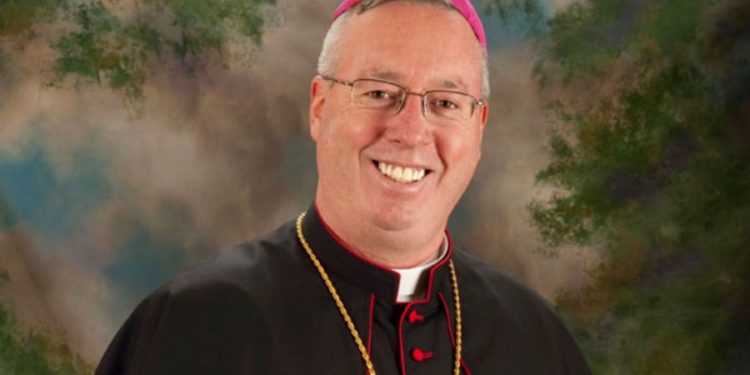Coyne said that conflict between Williams and his family is unrelated to the decision. “The decision is simply based on the fact that a man who freely accepted the promise of respect and obedience to the bishop and his successors was given a direct order, in obedience, to do something. And he said no,” Coyne said.
Coyne called the situation “very sad” for the parish, the diocese, and himself.
In his letter, the bishop wrote that he has appointed Father Henry Furman, pastor of St. Michael Parish in Brattleboro, as administrator of Holy Family parish “until another priest can be assigned on a more permanent basis.”
If Williams does not leave the parish, Coyne said: “I’m certainly not going to escalate the situation. We’ll just let it play out and see where it goes.”
“I’m certainly not one who’s going to begin with retaliation or strong arm tactics or anything like that,” he added. “I’m just praying people make good decisions.”
In Coyne’s letter to parishioners, he said that he invited Williams to stay with him at his residence in St. Joseph Cathedral Parish in Burlington “so that he and I can pray, dialogue and worship together to hopefully change the bad opinion he has of me as his bishop and to strengthen the bond of fraternity that should exist between a bishop and his priest.”
When asked if he thinks Williams will accept, Coyne said he hopes he does because “he’s one of my brother priests and I don’t want to lose a priest. I need every priest we have.”
In his Jan. 5 video, Williams said that he has canonical rights as a pastor to remain in his post and had hired a canon lawyer to help fight the case until Coyne officially removes him through a canonical process.
In a Feb. 22 video Williams argued that Coyne’s demands violate natural law and the dictates of conscience.
Williams also said that the Church condemns the use of coercion, even if that coercion is used to vaccinate people during a pandemic.
Williams said that “it’s undeniable” that at the time he posted his original video, while COVID-19 vaccines were approved under the Food and Drug Administration’s Emergency Use Authorization, that the FDA was acknowledging that the vaccines were experimental.
(Story continues below)
Williams cited the Catechism of the Catholic Church section 2295 which says that experiments “are morally legitimate when they are at the service of the integral good of the person and of society, without disproportionate risks to the life and physical and psychological integrity of the subjects who must be properly informed and consenting.”
“If ‘informed consent’ doesn’t include the ability to decline a treatment or procedure, then it is not informed consent,” Williams said.
Credit: Source link




